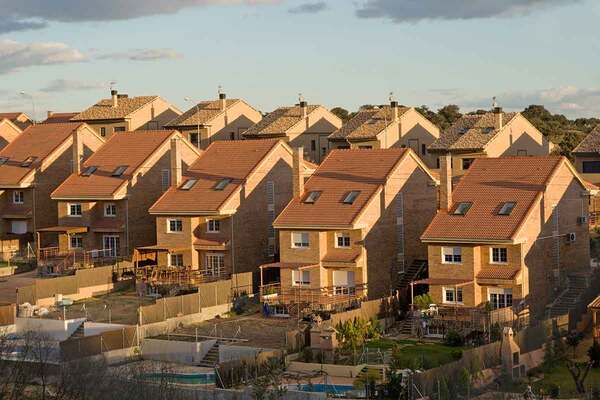Plans to scrap nutrient neutrality rules blocked by Lords
Last night, members of the House of Lords voted against a government amendment to scrap nutrient neutrality rules.
The vote came after an announcement last month by the Department for Levelling Up, Housing and Communities which said that scrapping the “defective EU laws” would generate an estimated £18bn for the economy between now and 2030.
The government promised that developers could begin construction in affected areas “in a matter of months”, which quickly welcomed the announcement as they believe the rules are blocking the development of more than 100,000 homes in areas with high levels of river pollution.
To change the rule, the government introduced an amendment to the Levelling Up and Regeneration Bill, which was going through the House of Lords.
Conservative Baroness Scott of Bybrook, whose name the amendments are in, opened the debate: “Nutrients entering our rivers is a real and serious problem, but the contribution made by new homes is very small compared with that from sources such as industry, agriculture and our existing housing stock.”
She also reiterated the government’s commitment to double the investment in Natural England’s nutrient mitigation scheme to £280m, to ensure it is sufficient to offset the additional nutrient discharge of up to 100,000 homes between now and 2030.
However, Labour’s Baroness Jones of Whitchurch pushed back on the amendment. She said: “I am surprised that these late amendments were not sent back to the lawyers due to defective drafting. As has been said, they now require public bodies to look both ways at once, facing different requirements in different legislation.”
She also accused the government’s plans of undermining “our evidence-based planning system and set a dangerous precedent”.
Baroness Parminter, Liberal Democrat, admitted the current mitigation scheme in place is “not perfect”. But added: “The guidance to local authorities about what is acceptable for mitigation may not be as clear as it needs to be. However that does not mean that at the 11th hour, the government can suddenly throw in an amendment to a bill.”
Labour Baroness Hayman of Ullock agreed that “the current nutrient neutrality rules do not work”, a view shared by many who spoke in the debate, although she added that “we do not think that the government’s proposals work either”.
She proposed another amendment that she said would introduce “nutrient neutrality reform on the basis of consultation and evidence, and through the principle of good law”.
Ultimately, the attempt to ease the rules was defeated by 203 votes to 156. It has been widely reported that the Labour Party whipped its members into voting the plans down.
After the vote, housing secretary Michael Gove took to Twitter to criticise the Labour leader.
He said: “Keir Starmer has ordered Labour lords to vote to block 100k new homes, seeking to end the dream of homeownership for thousands of families. This is despite boasting that Labour would be the party of the builders not the blockers.
“It now appears that Lisa Nandy – who indicated her support for these measures to unlock 100k new homes – was demoted for being too pro-housebuilding and too pro-homeownership.”
However, Angela Rayner, who replaced Lisa Nandy as the shadow housing secretary earlier this month, hit back.
She said the “flawed nutrient neutrality plan has tonight been humiliatingly rejected” and accused Mr Gove of attempting to score “cheap political points”.
Ms Rayner added: “Labour’s amendment demonstrates our commitment to serious reform of nutrient neutrality rules. It’s time to build a consensus for a credible alternative based on evidence, and not at the expense of our rivers.”
As the government tried to introduce the change at such a late stage in the bill’s passage, it cannot try again in the House of Commons now that it has been defeated in the Lords. Ministers would need to bring the proposal forward in a new bill.
Meanwhile, there are 74 planning authorities across England that have paused housebuilding since May 2022 because of high levels of nitrates and phosphates in wetland areas, which are killing the invertebrates eaten by protected birds.
Natural England has advised these areas that any new developments must be nutrient-neutral, effectively banning new houses unless councils have offsetting schemes in place.
The rules were originally introduced under an EU directive on habitats and reinforced by a 2018 ruling by the Court of Justice of the European Union, but were expanded by Natural England to cover more areas in 2022.
Housing associations have previously said the rules were having a “huge impact” on the sector’s ability to deliver new homes.
Sign up for our development and finance newsletter
Already have an account? Click here to manage your newsletters












